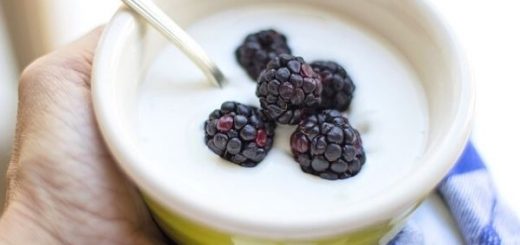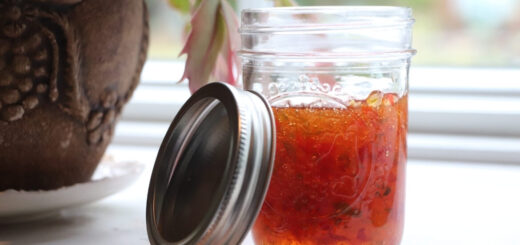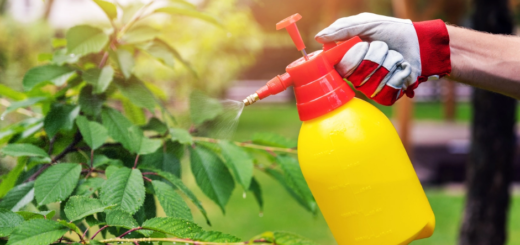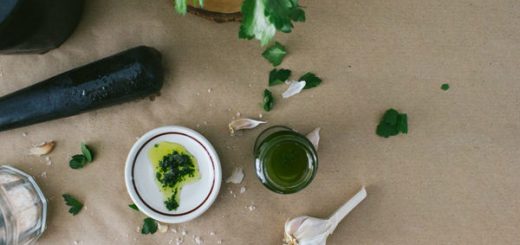Are cranberries healthy?

In this article, find out whether cranberries are healthy, what their benefits are and how fresh compares to dried – dive into our in-depth analysis of this winter berry!
The berries belong to the Heather family (Ericaceae), the same family that also includes the blueberry and the blueberry.
The berry originally grows on vines in freshwater marshes and is not found in the Netherlands. Cranberries now grow here, especially on Terschelling and the other Wadden Islands. The harvest time is in September and October. Then you have the best chance of buying fresh cranberries. But how healthy are cranberries? You will now get an answer to that.
SUMMARY
The cranberry is also called cranberry or cowberry. It is not originally found in the Netherlands. You can now find nurseries on the Wadden Islands (especially on Terschelling).
Why are cranberries healthy?
First of all: cranberries are certainly healthy. These little red toppers are packed with antioxidants. These are substances that protect your body against damage caused by free radicals.
The main antioxidants in cranberries are quercetin, myricetin, cyanidin and peonidin. The last two give the sour berries their ruby red color. The peel contains a lot of ursolic acid. This is a substance that is widely used in herbal medicine.
Ursolic acid is said to have anti-inflammatory properties. It may also have anti-cancer effects, especially in prostate cancer. This is because ursolic acid can inhibit the proliferation of tumor cells. Cranberries are the best source of ursolic acid according to researchers.
But cranberries certainly also have health benefits for women. Women in particular are more likely to suffer from bladder infections. A bladder infection is one of the most common infections caused by bacteria.
You may have heard that cranberries help against bladder infections. This is probably due to the proanthocyanidins (PAC) present. These are substances that are said to have medicinal properties and are considered ‘attack and defense molecules’ because of their potential benefits on human health.
But did you know that cranberries have many more health benefits? We give you a handy overview.
Against bladder infection
Probably one of the most well-known health benefits that the cranberry has in store is that the berry is said to help prevent a bladder infection.
Red fruit cannot cure an existing bladder infection. Although some research results are contradictory.
But the cranberry is said to help prevent bladder infections. A bladder infection is usually caused by the intestinal bacteria E-col. It is thought that the proanthocyanidins may prevent the bacteria from attaching to the bladder wall.
Good for your heart
Cranberries could play a role in preventing cardiovascular disease. This has to do with the anthocyanins present. These are natural dyes in plants, as they also occur in cherries, grapes and purple corn. This is also one of the reasons that blueberries are healthy.
Fresh cranberries contain a striking amount of this substance, which, according to some researchers, could play an effective role in preventing arteriosclerosis.
They could also improve the overall health of your heart and blood vessels. Cranberries may also improve cholesterol balance and lower blood pressure.
For radiant teeth
Perhaps a connection that you would not immediately make (neither do we), but cranberries can contribute to maintaining healthy teeth. They can help prevent dental cavities and gum disease. They are also said to prevent dental plaque.
The same substances (PACs) that may prevent a bladder infection could also prevent bacteria from forming in your mouth. A small study suggests that PACs may even prevent dental erosion.
Good digestion
The fact that cranberries contain fiber is already good for digestion. But eating cranberries can also be healthy for your intestinal flora. A 2018 study shows evidence that the berries stimulate the growth of beneficial intestinal bacteria.
The right intestinal bacteria contribute to good defenses and support digestion. Plus, they may even improve your mood.
All useful factors if you want to lose a few kilos (better mood = often less comfort food and more motivation). So it is certainly possible to lose weight healthily with cranberries.
RESUME
Due to the many powerful plant substances and antioxidants, cranberries are said to have a number of health benefits. They can help prevent a bladder infection, but are also good for your heart, teeth and digestion.
Nutritional value of cranberries
It’s great that we know that cranberries are healthy, but what are their nutritional values? A bowl (100 grams) of fresh cranberries contains:
| Energy | 24 kcal |
| Fat | 0.1 grams |
| of which saturated | 0 grams |
| Carbohydrates | 3.4 grams |
| of which sugars | 3.4 grams |
| Fibres | 3.6 grams |
| Egg white | 0.4 grams |
| Salty | 0 grams |
As you can see, the berries contain hardly any calories. The sour berries contain relatively little sugar, making them a great fit for a low-carb diet . Please note: this is not the case for dried cranberries. These contain about 77.6 grams of sugar per 100 grams (!). This is also reflected in the number of calories.
100 grams of dried cranberry contains no less than 335 calories. As you can see, this is quite a difference. If you eat cranberries because you want to boost your health, it’s best to eat fresh ones and avoid sweetened cranberries.
Can you eat cranberries raw?
You can eat cranberries raw, but due to the bitter and sour taste, few people appreciate this. Because the berry is quite sour, many sugars are often added to products containing cranberries. It is best to eat fresh cranberries.
Does the thought make you cringe, but do you want to take advantage of the possible health benefits? Then supplements with cranberry powder might be something for you.
Nowadays ‘cranberry pills’ are available everywhere, preferably choose a supplement without additives and always follow the instructions for use.
How healthy are dried cranberries?
You already saw in the nutritional value that cranberries in dried form contain shockingly more sugars and calories than fresh cranberries. Unsweetened dried cranberries are also available, although you will probably have to go to a health food store. You can also dry cranberries yourself.
Drying the berries also affects the amount of vitamins and minerals. Fresh lingonberries contain the most vitamins and minerals. A large portion of the antioxidants are lost when you dry cranberries. However, the dried version also contains B vitamins, vitamins K, E and A. Still a healthier snack than that bag of English licorice.
The proanthocyanidins also survive dehydration (the extraction of water). So if you eat cranberries to protect yourself against a bladder infection, you can also take dried cowberries.
And juice?
Almost nothing feels more healthy than starting the day with a nice glass of cranberry juice. Stop, whoa. This is not always true. Cranberry juice can certainly be part of a healthy lifestyle, but unfortunately the juices are often packed with added sugar. So always check the label and preferably choose a pure product without additives.
A juice is certainly a great way to get some extra fruit, but it is still best (due to fiber and such) to eat the whole fruit. In addition, many plant substances that make the cowberry so healthy are found in the peel. These can be lost during the juicing process.
Moreover, drinking a glass is not filling, while eating fruit is. This makes it easier for you to consume many more calories without feeling more satiated. Preferably just bite through the sour apple cranberry.
RESUME
You can eat the red berries raw (which is also the healthiest), but most people do not like this because of the sour taste. Be careful with dried fruit and juices. These often contain a lot of added sugars and are not satiating.
Cranberry side effects
Because of the fibers, if you eat too many cranberries, you may experience stomach problems (for example diarrhea). Even if you are sensitive to kidney stones, it is better to ignore the little ‘sourpusses’. Kidney stones are formed from calcium oxalate. Cranberries (especially concentrated extracts) are quite rich in oxalates.
Although opinions are still divided about the role of the cranberry in the development of kidney stones. There are also reports that suggest that the fox bush can actually reduce the risk of this.
In addition, the cowberry could possibly react with blood thinners. If you use these, it is wise to check with your doctor first if you plan to give cranberries a prominent role in your diet.
How many (dried) cranberries per day?
Even though cranberries are healthy, just like with everything else, it’s best not to overdo it. Certainly not when it comes to dried cranberries. This is because with just one handful (20 grams) you consume an average of 12.9 grams of sugar. That’s decent.
So it’s better to use fresh cranberries. In that case, a bowl (100 grams) counts as a piece of fruit. If you find them too intense pure, you can use them in a smoothie, salad or in a (healthy) baked dish. If you have any great tips, we would love to hear them in a comment below this post. Do you drink cranberry juice? Then stick to one glass a day (also because of the oxalates).
RESUME
The answer to the question of how many cranberries you can eat per day depends on which cranberries you take. If you take fresh berries, you can safely eat 100 grams per day. Do you buy dried fruits? Then, in connection with the sugars, we recommend limiting it to 20 grams per day.
How healthy are cranberries? Conclusion
The cranberry is healthy, that’s for sure. Because a lot of sugar is often added to dried cranberries, it is better to use fresh cranberries or dry the cranberries yourself.
The little berries are big when it comes to vitamins and minerals. They also contain many powerful antioxidants. They can help prevent bladder infections or dental problems, but they are also said to reduce the risk of cardiovascular disease.











